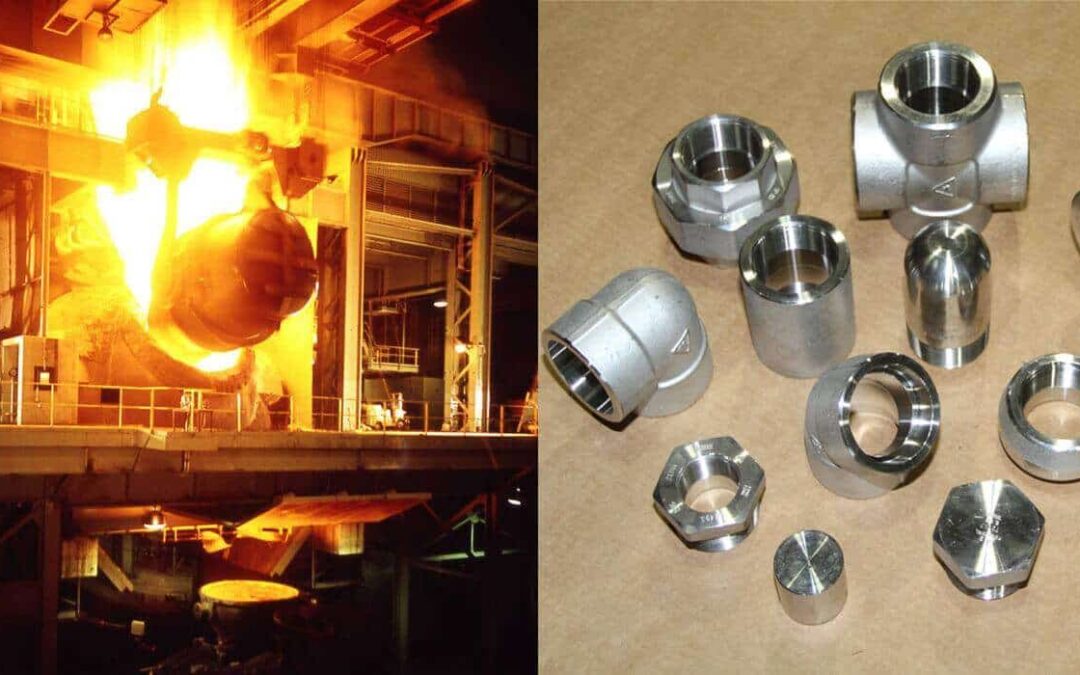Forged socket weld fittings are critical components in piping systems, noted for their strength and dependability. These fittings are used to connect pipes, valves, and other equipment, and they provide multiple advantages, making them a popular choice in a variety of industries. This blog post will look at the primary benefits of utilizing forged socket weld fittings and why they are popular in industrial applications.
Understanding Forged Socket Weld Fittings
Before we get into the benefits, it’s important to understand what forged socket weld fittings are. These fittings are produced from forged steel, which is heated and formed under great pressure to produce long-lasting components. They include a socket into which the pipe is put before welding, resulting in a strong and solid connection.
Key Characteristics:
Material: Typically made from high-strength forged steel.
Connection Type: Involves a socket and welding process.
Pressure and Temperature Ratings: Suitable for high-pressure and high-temperature applications.
High Strength and Durability
Forged socket weld fittings have several advantages, including their great strength and longevity. The forging process strengthens the material’s mechanical qualities, making it more resistant to wear and tear than other fitting types.
Benefits:
Enhanced Strength: Forged fittings can tolerate high pressures and intense temperatures without failing.
Longevity: Their strong structure ensures a longer service life, which reduces the need for frequent replacements.
Resistance to Fatigue: Forged socket weld fittings are less likely to crack or distort when stressed, making them excellent for demanding applications.
Applications:
Oil and Gas: Used in pipes and equipment where strength is essential.
Power Generation: Ideal for high-pressure systems in power plants.
Excellent Leak Prevention
Leak prevention is critical in piping systems, particularly in hazardous or high-value fluid industries. Forged socket weld fittings are intended to create a secure and leak-proof connection.
Benefits:
Tight Seal: The socket weld connection forms a robust, tight seal, reducing the chance of leakage.
Reduced Maintenance: Fewer leaks require less maintenance and provide fewer possible safety issues.
Improved Safety: Leak-proof connections improve the overall safety of the pipe system.
Applications:
Chemical Processing: Important for preventing leaks in chemical transport and processing systems.
Water Treatment: Provides dependable connections in water and wastewater systems.
Versatility and Flexibility
Forged socket weld fittings are versatile and compatible with a wide range of applications. They are compatible with a wide range of pipe diameters and materials, making them appropriate for a variety of systems.
Benefits:
Variety of Sizes: Available in a variety of diameters to meet different pipe requirements.
Compatibility: Carbon steel, stainless steel, and alloys are all suitable pipe materials.
Adaptability: Suitable for high and low pressure applications.
Applications:
Food and Beverage: Used in processing and packaging operations where flexibility is required.
HVAC Systems: They are widely used in heating, ventilation, and air conditioning systems due to their versatility.
Cost-Effectiveness
While forged socket weld fittings are more expensive at first, their long-term cost-effectiveness is significant. The endurance and decreased maintenance requirements frequently offset the original outlay.
Benefits:
Long-Term Savings: Reduced frequency of replacements and maintenance results in total cost reduction.
Durability: Forged fittings have a long service life, which assures a strong ROI.
Reduced Downtime: Reliable fittings reduce system downtime and related expenses.
Applications:
Industrial Manufacturing: Suitable for a variety of production processes in which long-term cost savings are essential.
Transportation: Used in fluid and gas transportation systems when reliability is critical.
Conclusion
Forged socket weld fittings have various advantages, making them a popular choice for many industrial applications. Their great strength, durability, leak prevention, adaptability, and cost-effectiveness make them excellent for working in high-pressure and high-temperature environments. Whether employed in the oil and gas industry, chemical processing, or power generation, these fittings provide dependable and secure connections that improve piping system performance and safety.
Understanding these major benefits enables you to make informed selections when selecting fittings for your plumbing requirements, ensuring that your systems run efficiently and safely.


